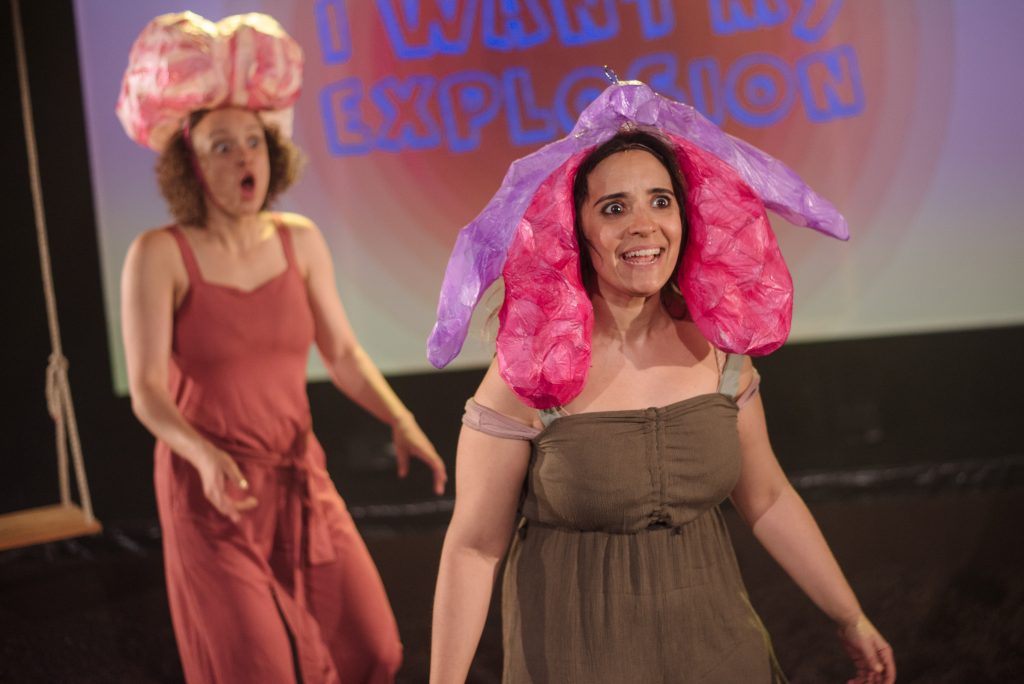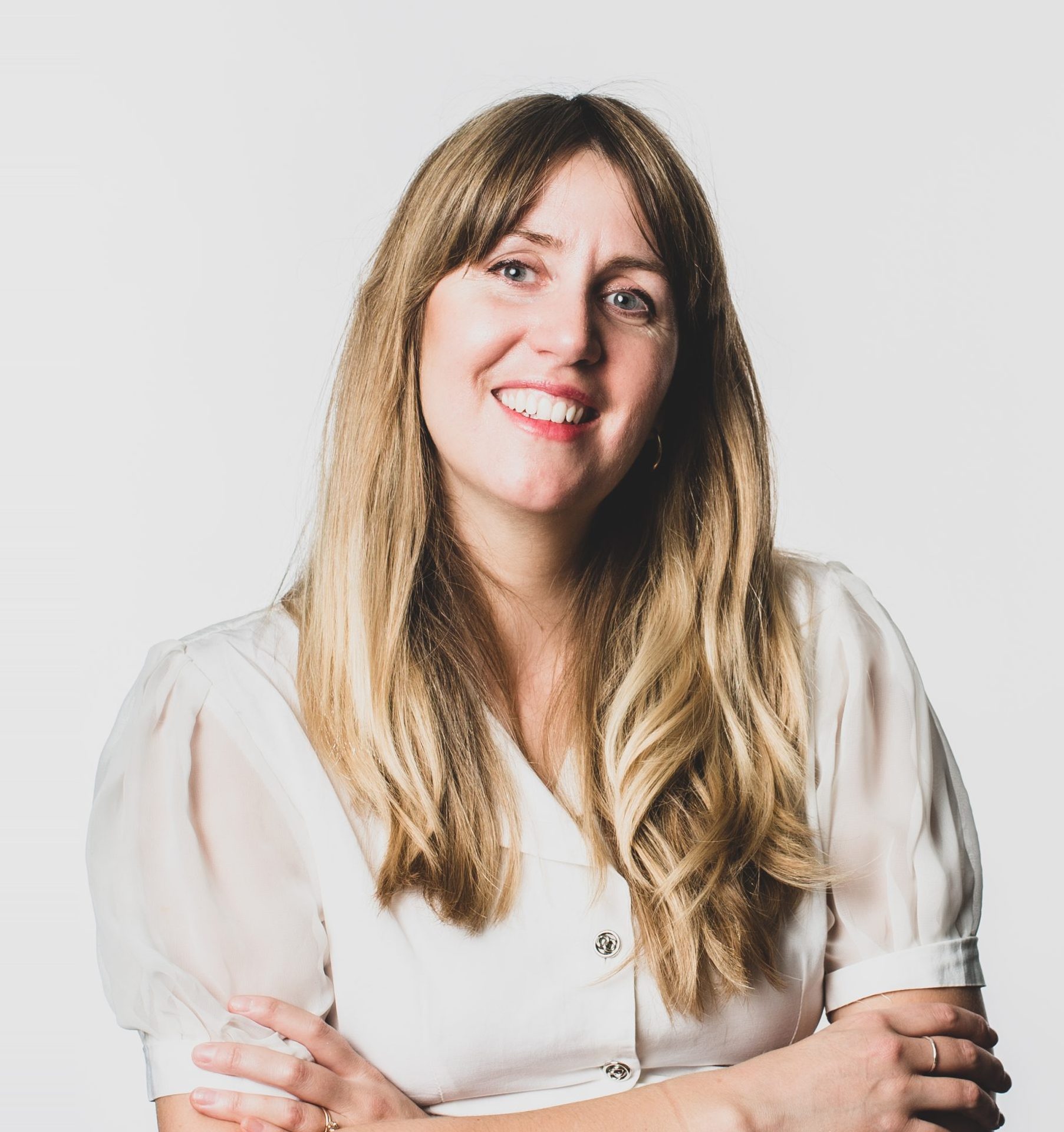 (5 / 5)
(5 / 5)
After her Edinburgh and Vault Festival hit ‘My World Has Exploded A Little Bit’, Bella Heesom’s second play is an exploration of ladybits, and the ways in which our society and environment have negatively affected our attitudes towards them.
Heesom plays the Brain and Sara Alexander plays the Vulva in this surreal dialogue which spans the ways we feel about our bodies from infancy to adulthood. Brain is uptight and stiff as she processes the messages she learns from men and boys and how to behave, what to hate about her body and why sex is all about pleasing men. Vulva is a sensuous, innocent and feral creature, that Brain constantly tries to discipline and contain.

At first Vulva and Brain get along, they play together in the woodchip-covered floor of the cocoon-womb-woodland set, hung with moist ferns, designed by Elizabeth Harper and lit within alternating hues of red and green by Jess Bernberg. It’s like they’re performing inside a moist terrarium. It’s earthy – just how Heesom says she wants sex to be.
The script is beautiful, with its poetic descriptions of erupting orgasms and fear about letting go with a sexual partner.
When Brain goes to secondary school and learns about periods and sex, her relationship with Vulva, gets more corrupted.
‘The boys say you smell of fish,’ says Brain.
‘Is that bad?’ asks Vulva.
‘Yes’
‘But don’t they eat fish?’ says Vulva, her eyes wide and shining.
Through a series of deceptively simple messages projected on the rear wall, like ‘Only boys masturbate’ and ‘Virginity = precious’ or ‘ Sex = penis in vagina’, we see how our ways of speaking about sex, even from a young age, lead to a fractured sense of sexual identity for women. As the story goes on, you see the sorry lot of women everywhere represented by the arguments between Vulva and Brain which reveal increasing dissociation between the act of sex and what our culture deems to be ‘sexy’.
As she grows up, we see Brain trying hard to process these conflicting messages about how she should look and behave. She starts oppressing poor Vulva in the process. Through a series of arguments, physical battles, and dance sequences, the fractured relationship builds to a point of near destruction. Vulva is being killed by the thousand cuts that we a society have internalised – that women have to be a thousand different things every day – that we are here predominantly to entertain – and that our sexual selves are insignificant.
That is until Vulva rises from the ashes and attempts to heal the severed connection between itself and the Brain.
There’s bravery and daring in this piece. It takes courage to put this much questing vulnerability into a performance, but it pays off by resonating with, I imagine, every woman in its audience.
This show will take you on an emotional journey – and hopefully, ultimately, a healing one.

